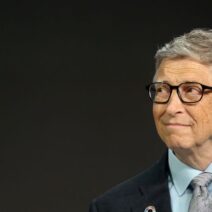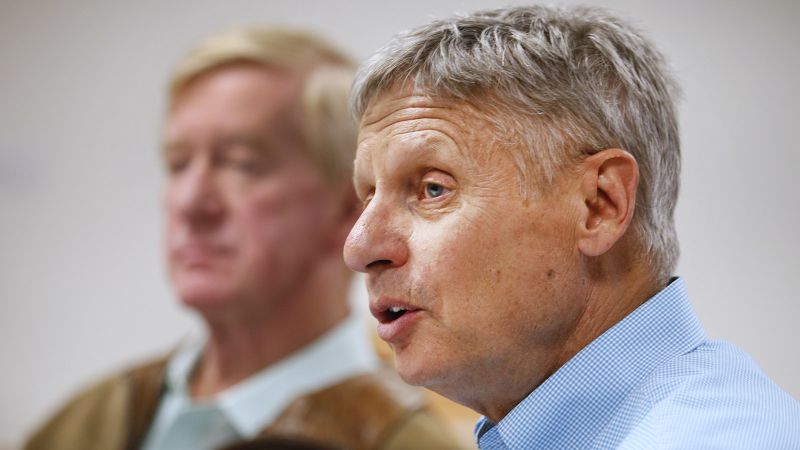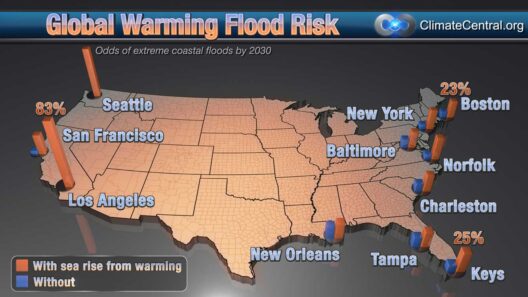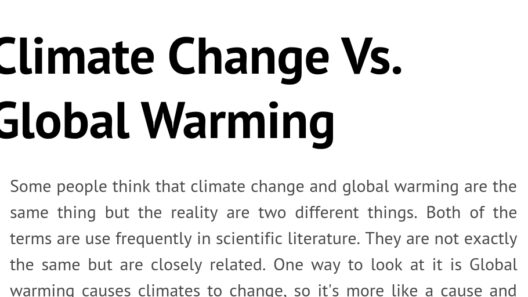In the polarized arena of American politics, perspectives on climate change and global warming have often catalyzed heated debates. One figure that frequently surfaces in discussions surrounding this topic is Gary Johnson, a former Governor of New Mexico and a prominent Libertarian politician. As climate change presents an existential threat to ecosystems worldwide, understanding Johnson’s stances provides crucial insight into broader political attitudes toward this pressing issue.
At the forefront of the discourse is the question: Does Gary Johnson believe in global warming? While Johnson’s views may appear somewhat ambivalent at first glance, they reflect a synthesis of libertarian principles and contemporary environmental concerns. Johnson acknowledges the phenomenon of climate change, recognizing it as a significant challenge facing humanity. However, his approach diverges sharply from that of many mainstream climate advocates and political leaders. Johnson emphasizes individual responsibility and market-driven solutions, often viewing governmental intervention with skepticism.
This libertarian ethos influences Johnson’s proposed solutions to climate issues. He advocates for voluntary initiatives rather than coerced regulations. In his view, the core issue lies in energy consumption and environmental stewardship rather than the imposition of stringent policies that he believes could stifle economic growth. This philosophical underpinning aligns with a common observation among libertarians: the distrust of government overreach and the advocacy for free-market efficiency as a catalyst for innovation and environmental progress.
Regarding the renewable energy sector, Johnson has expressed support for harnessing market forces to facilitate the transition from fossil fuels to sustainable energy sources. He posits that creativity and competition within the market could yield more effective solutions to climate change than government mandates. Nonetheless, this brings forth a crucial debate: can market forces adequately address the scale and immediacy of the challenges posed by climate change? Critics argue that reliance on market-driven solutions often results in delayed action, inadequate responses, and a focus on profit margins over environmental integrity.
Moreover, Johnson’s rhetoric around climate change can evoke a sense of skepticism, particularly when he speaks about the role of government in environmental issues. His supporters might argue that his Libertarian perspectives encourage innovation and personal accountability; however, detractors point out that his approach may neglect systemic inequities and environmental justice. The discourse shifts into a deeper analysis of how libertarian viewpoints engage with broader socio-economic realities. Is the insistence on minimal government intervention overlooking essential mechanisms that ensure equitable resource distribution and environmental protection?
The political landscape is ripe with varied perspectives on climate change, and Johnson’s position exemplifies the tension between individualistic ideals and collective responsibility. The observation that many Americans are concerned about climate change, yet skeptical of enactments, raises further questions about public sentiment and political responsiveness. Can political figures like Johnson galvanize enough support to prioritize climate action? Or does their adherence to libertarian principles hinder substantive progress towards effective climate solutions?
Despite the apparent complexities in Johnson’s approach, a deeper examination reveals an underlying fascination with climate science and its societal implications. His concern for the environment is evident, albeit articulated through a lens that prioritizes personal freedom and innovation over government control. This nuanced position invites deeper dialogue on the role of diverse political ideologies in crafting an approach to climate change that resonates with various sectors of society.
Johnson’s viewpoints also speak to a larger ideological schism within the political sphere. While the Democrats and many Republicans advocate for aggressive climate policies, libertarians like Johnson propose a radically different paradigm—one where innovation thrives unencumbered by what they perceive as regulatory constraints. This divergence calls into question how different political affiliations interpret climate science and advocate for actionable solutions.
Additionally, the role of public discourse in shaping environmental policy cannot be understated. Public awareness campaigns, media narratives, and grassroots movements heavily influence political convictions and politicians’ actions. Johnson’s acknowledgment of climate change can serve as a foundation for broader discussions about what effective, market-friendly solutions could look like. Engaging individuals in meaningful conversations about the implications of climate change, along with viable pathways forward, can encourage more dialogue across the political spectrum.
As the urgency of climate action grows, understanding political multifaceted views becomes critical. Johnson’s position illustrates that individual beliefs about climate impacts are intricately woven into larger ideological frameworks. While he acknowledges global warming as a reality, his approach emphasizes creative, market-driven solutions that can encourage innovation while challenging the efficacy of government intervention.
In conclusion, while Gary Johnson may not fit neatly into the mold of traditional environmental advocates, his belief in taking action against climate change is palpable. His political philosophy underscores a call to rethink approaches to climate action that leverage individual liberty and market solutions. The dialogue he fosters is essential, as it invites critical examination of how diverse perspectives can coalesce to address the multifarious challenges posed by global warming. As the conversation surrounding climate change evolves, it remains vital for all political factions to engage thoughtfully and collaboratively in crafting sustainable solutions.








